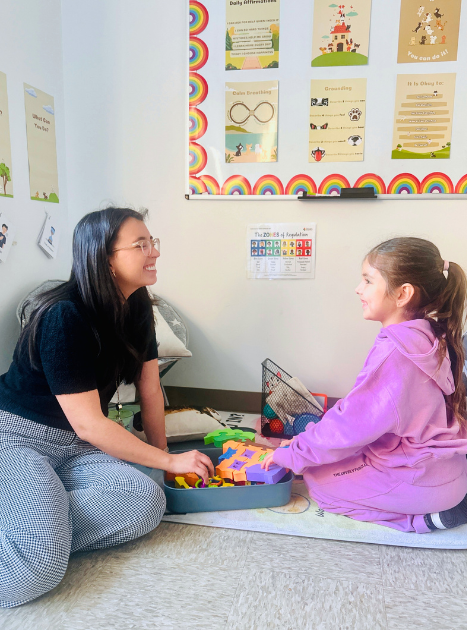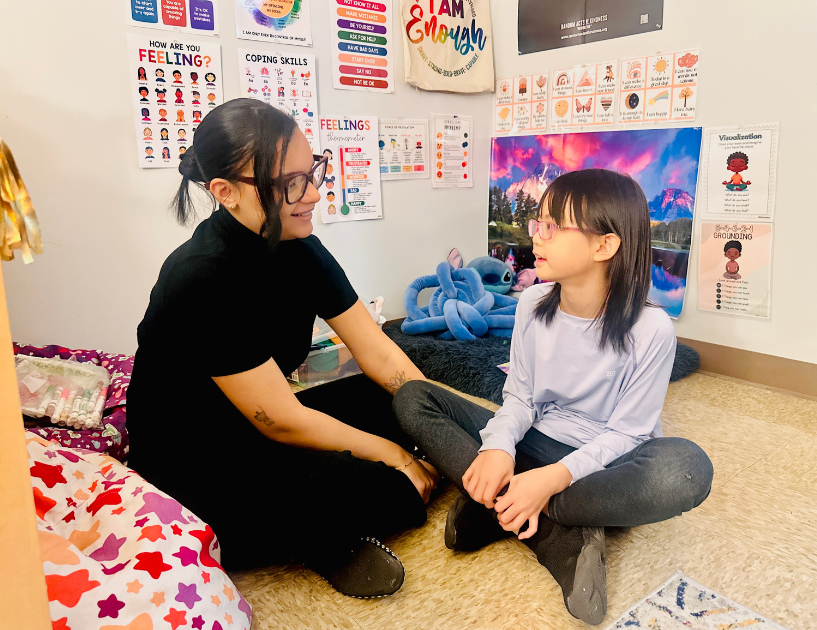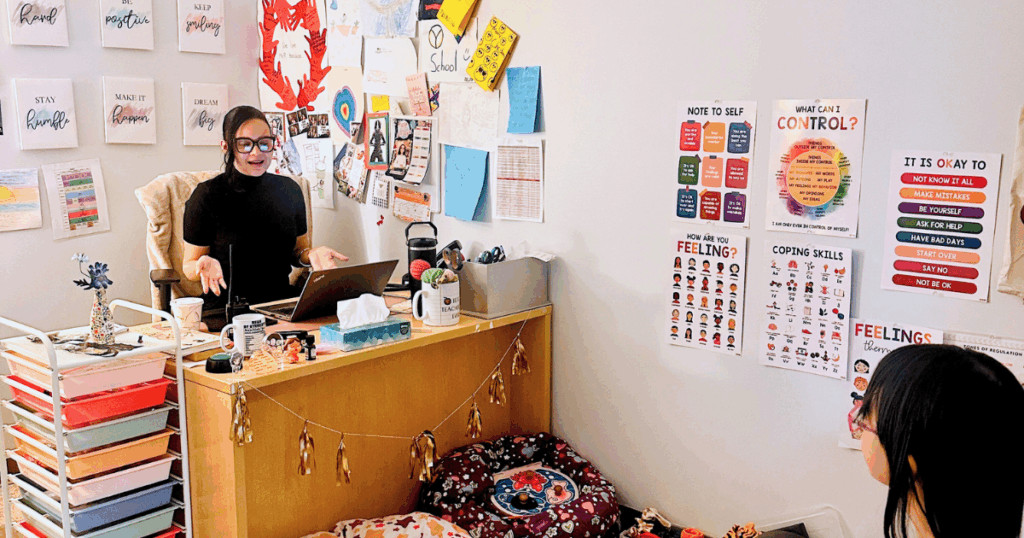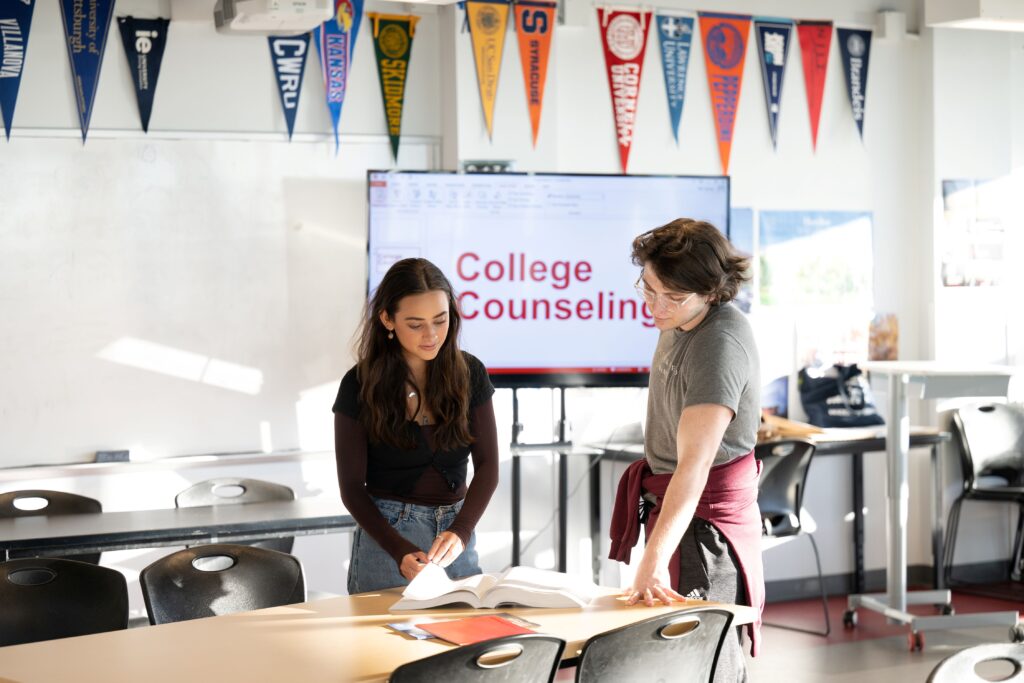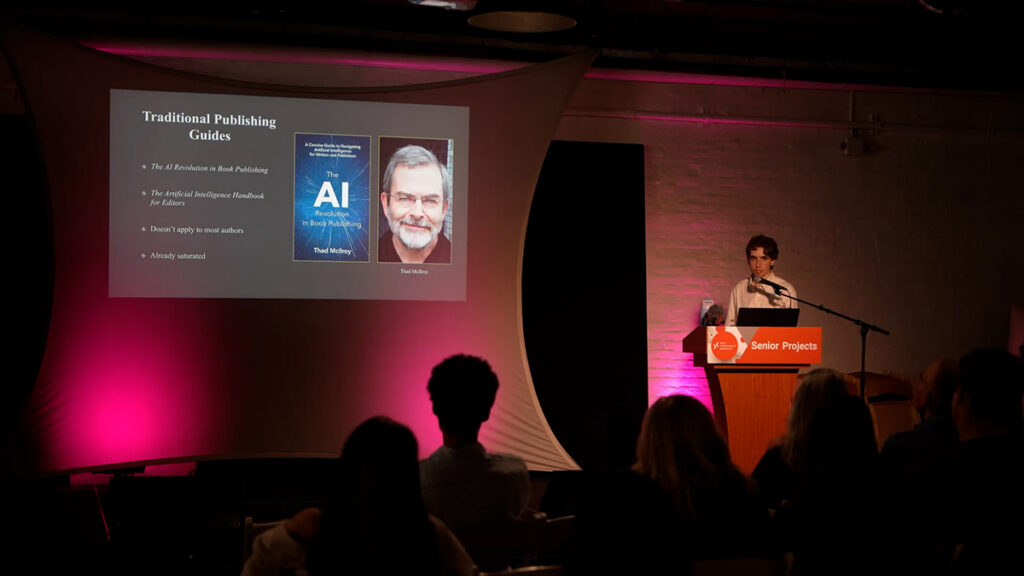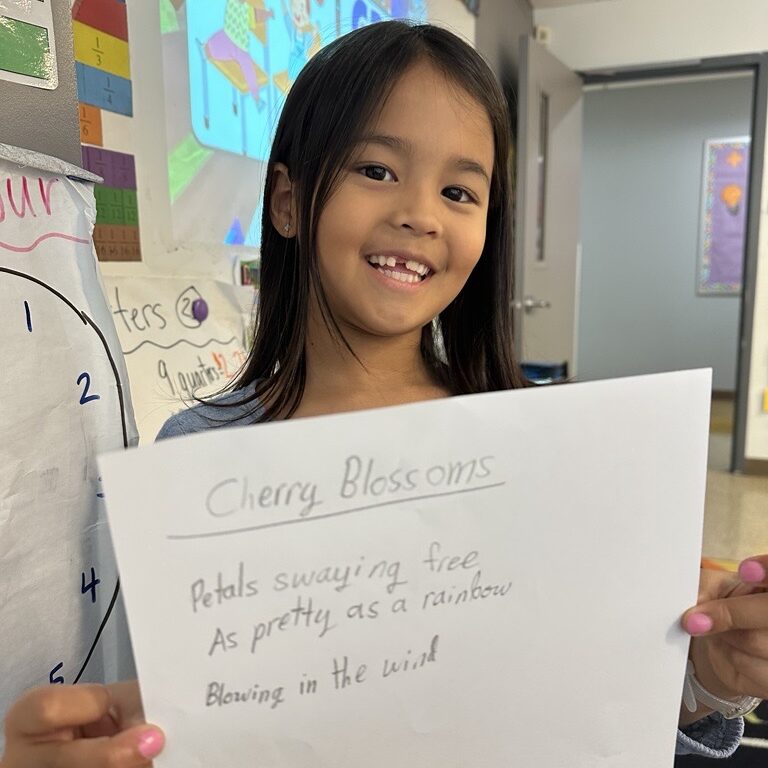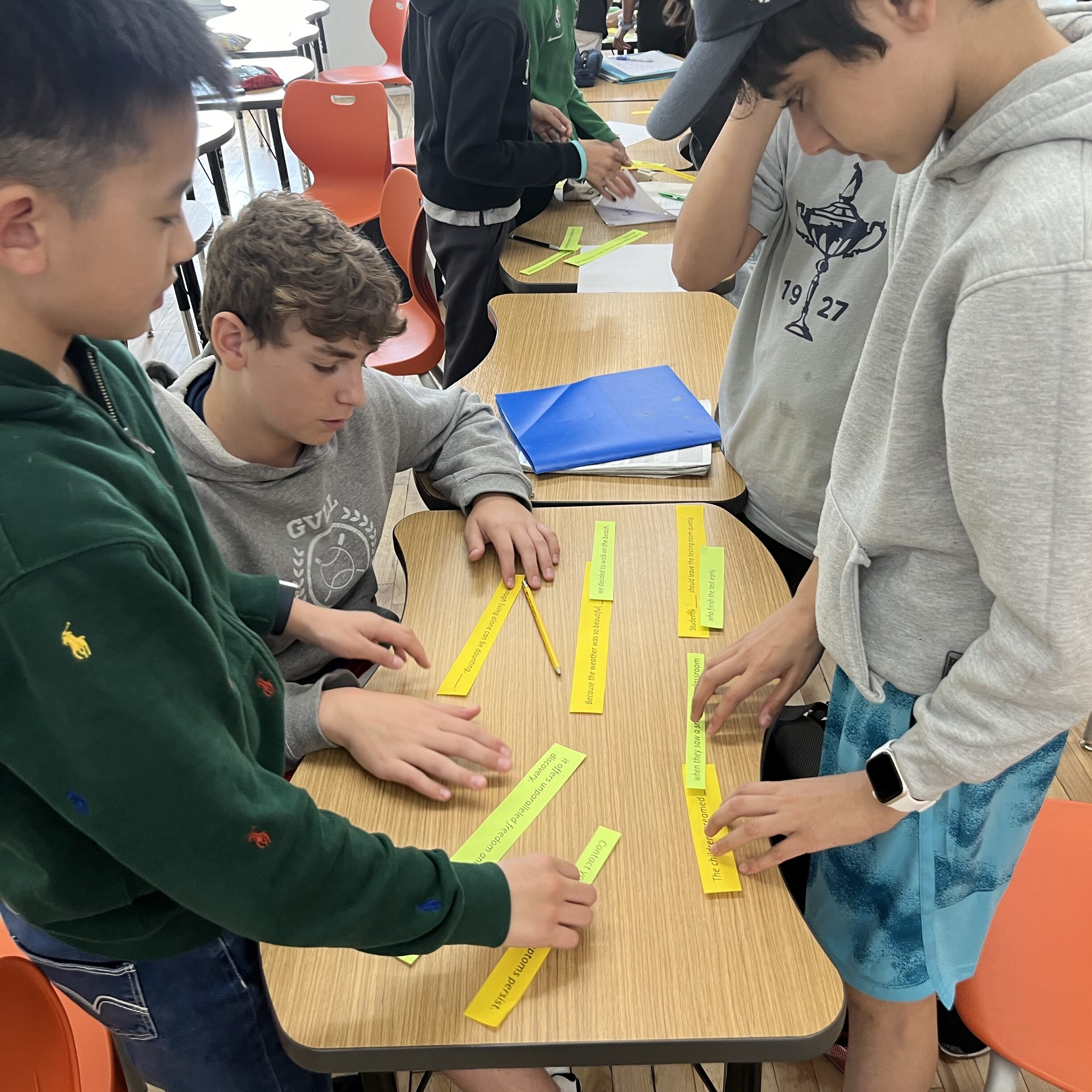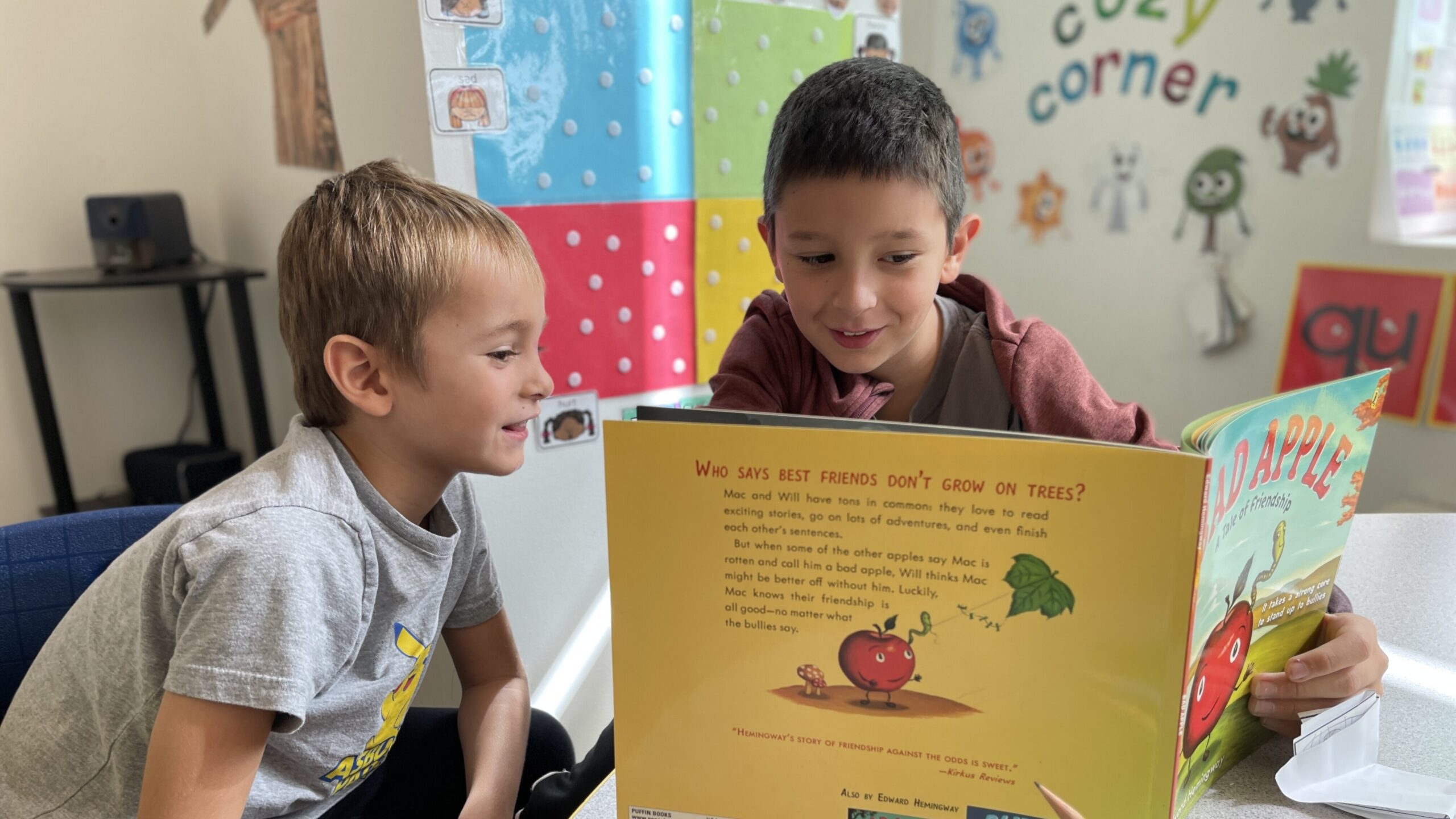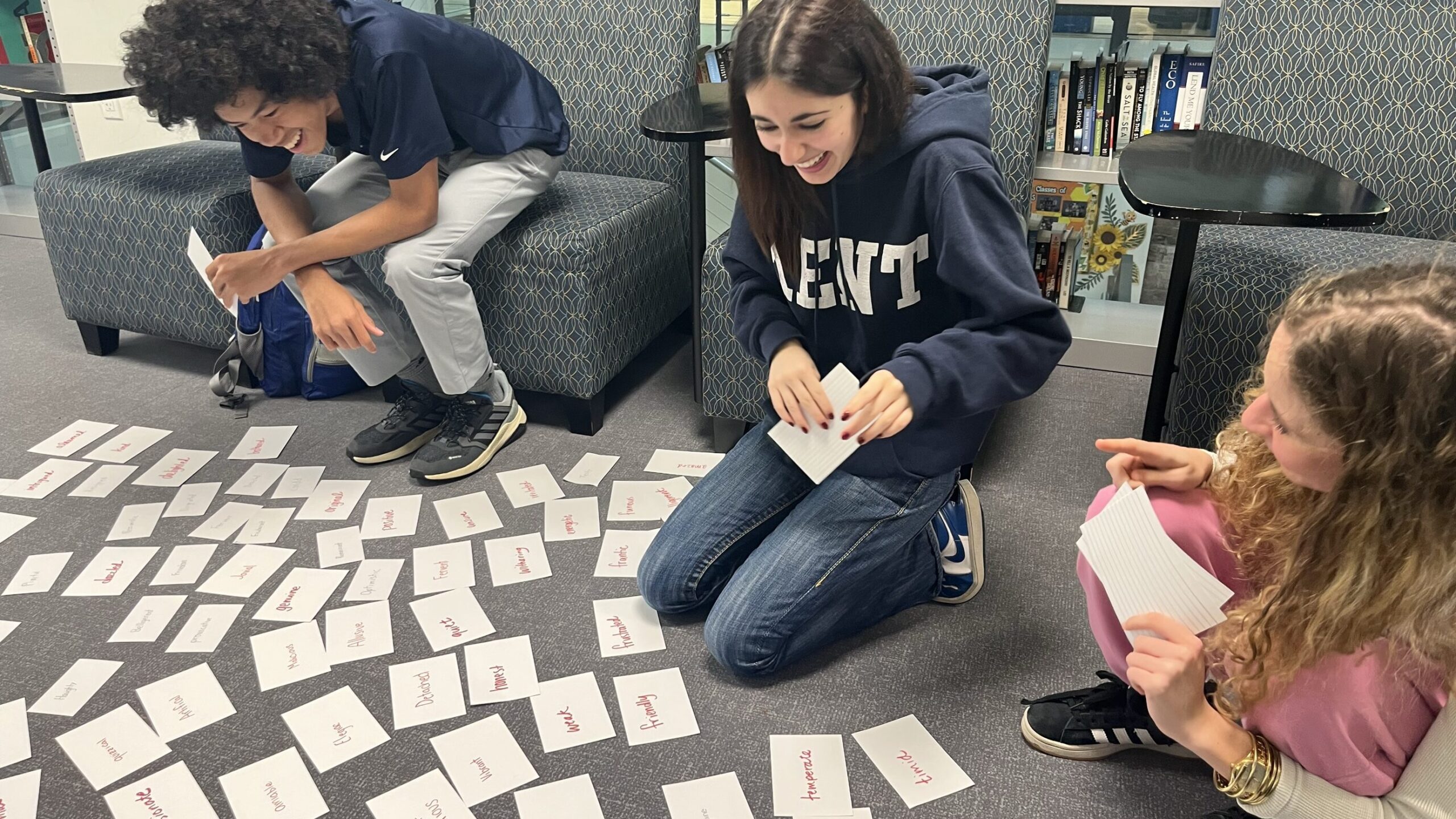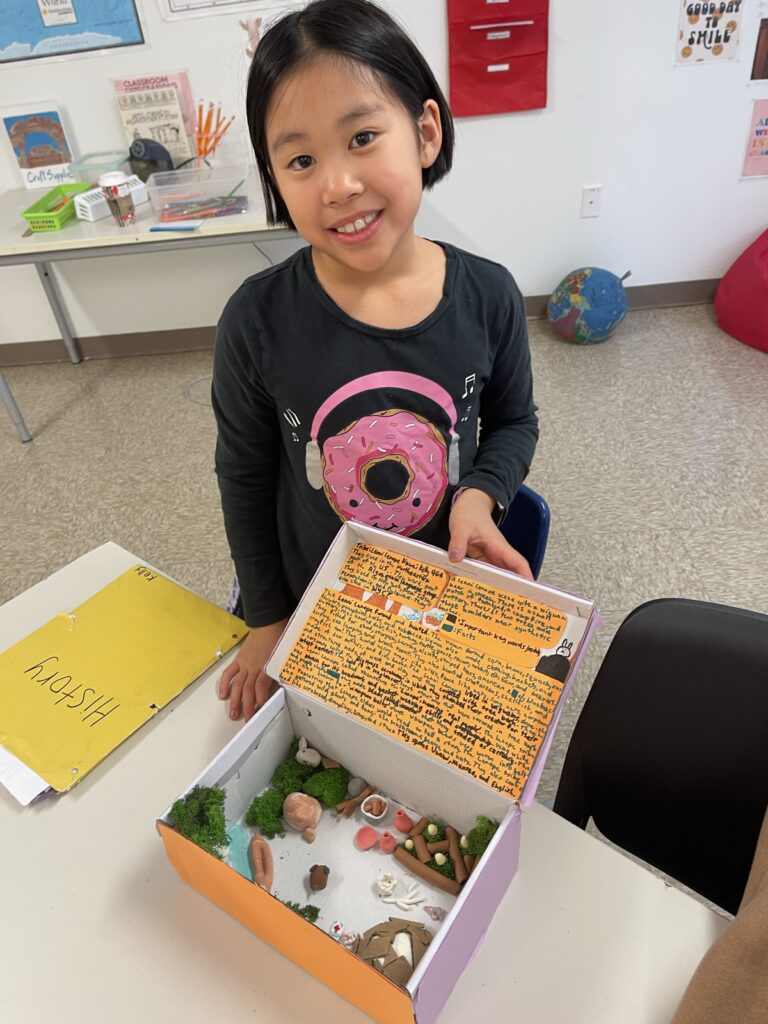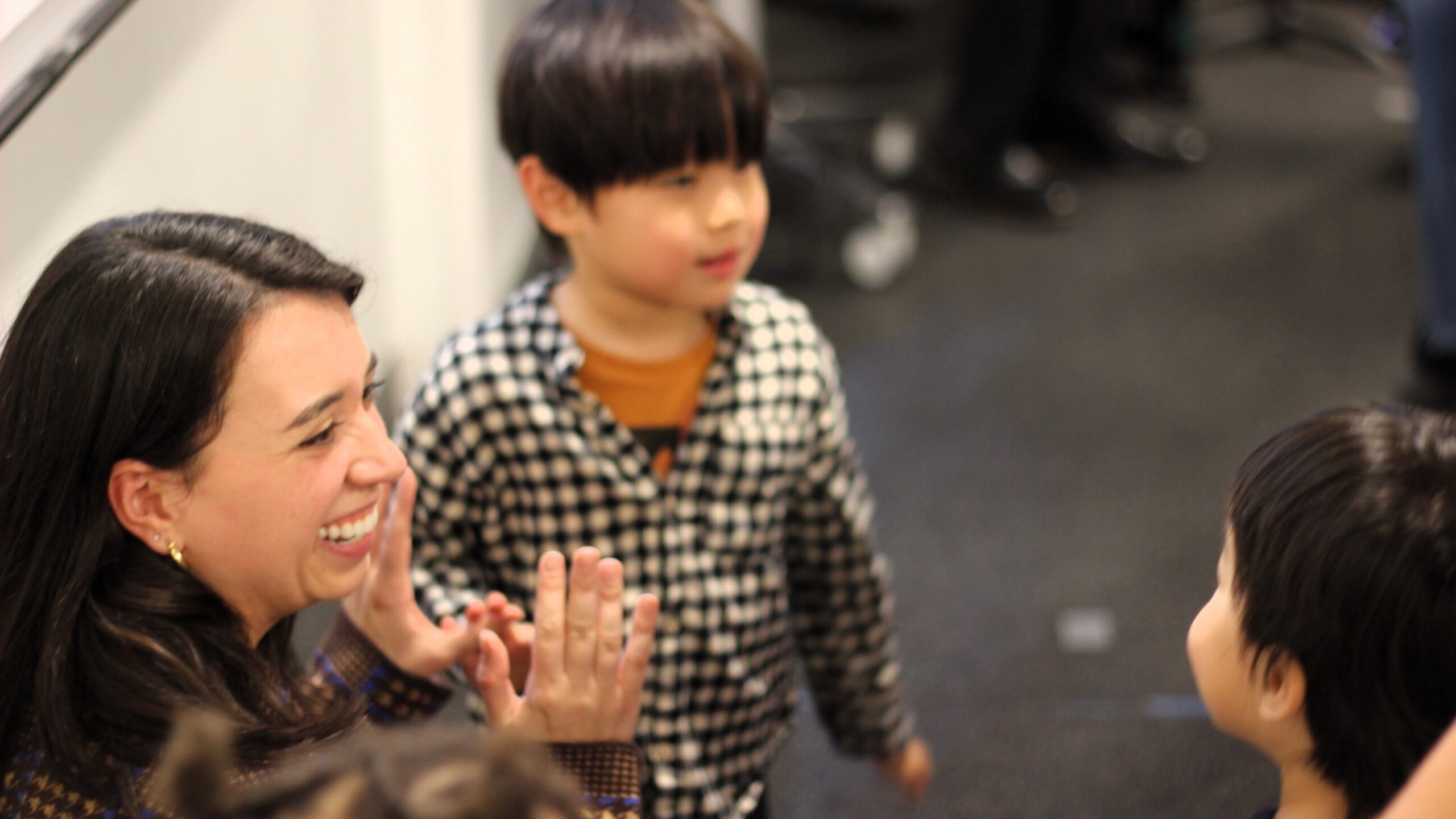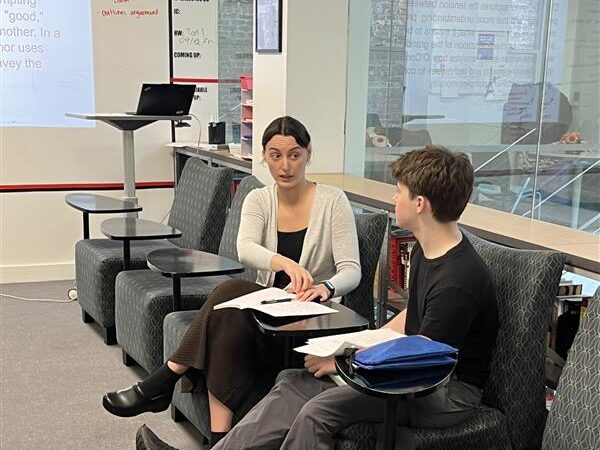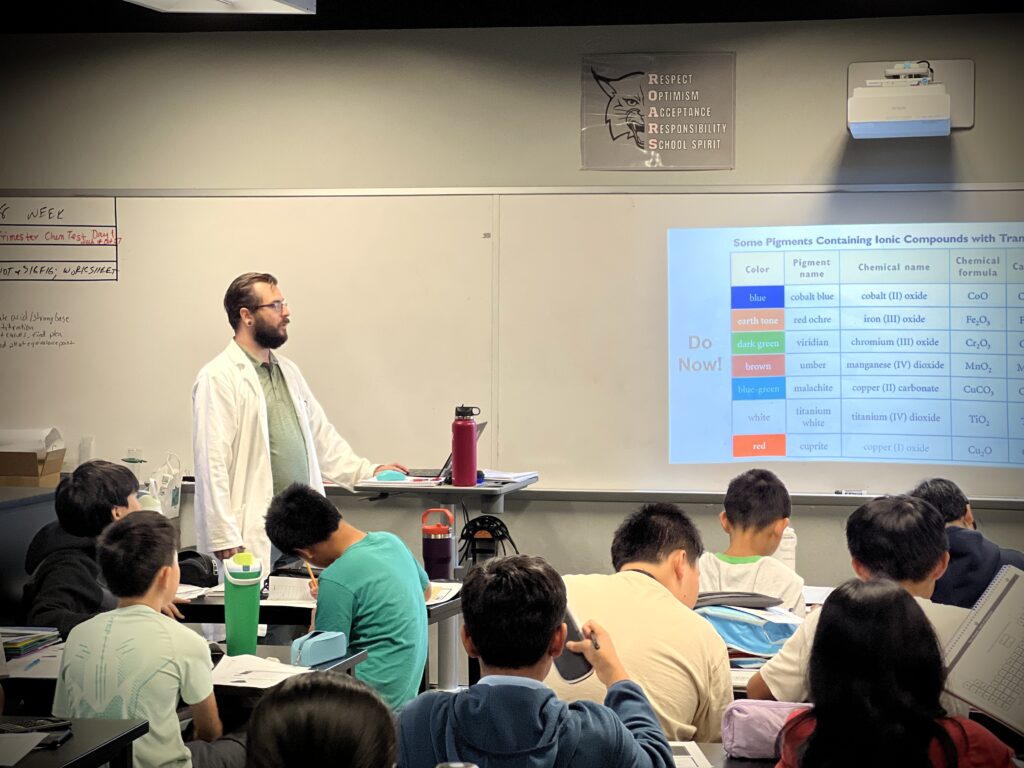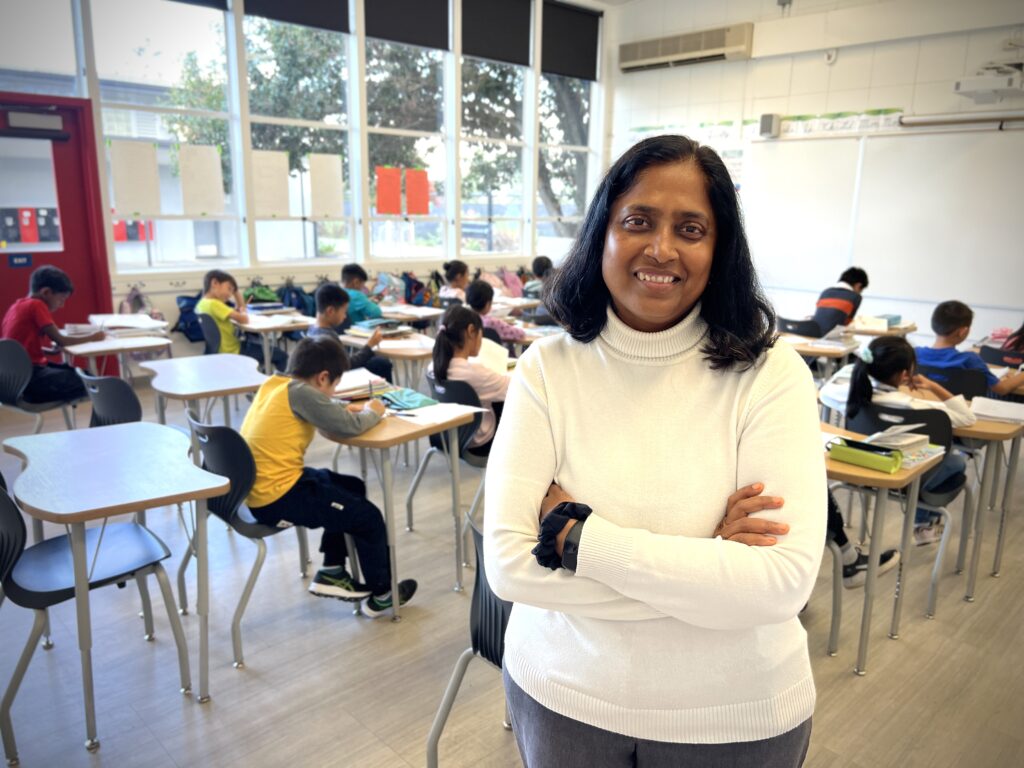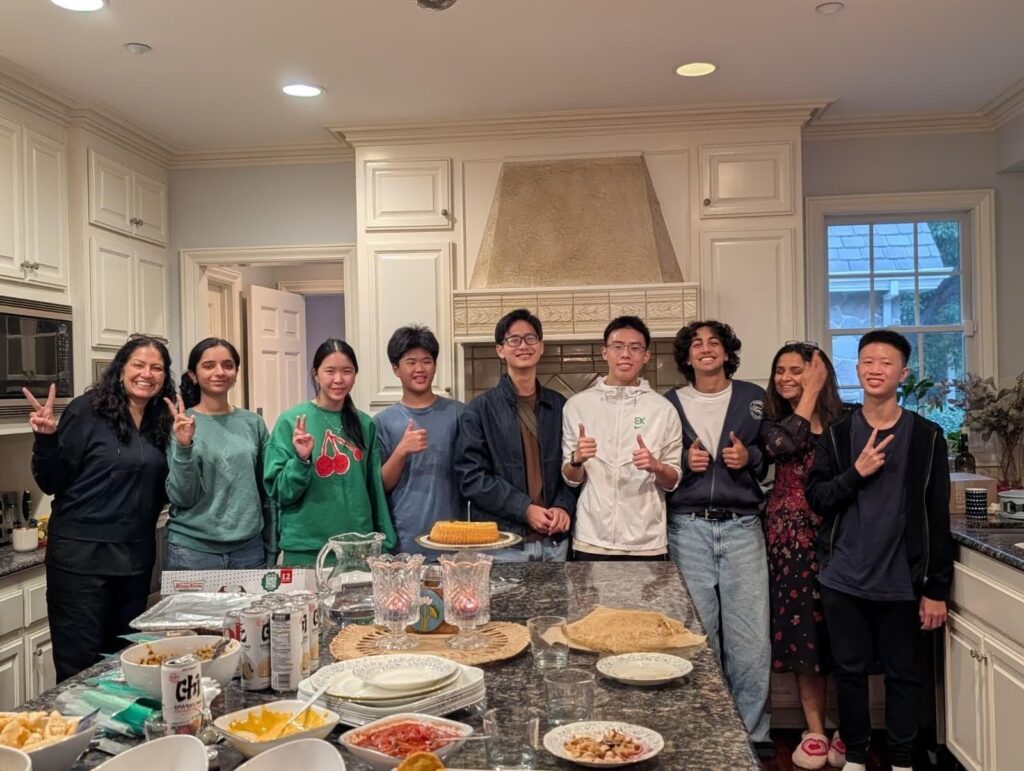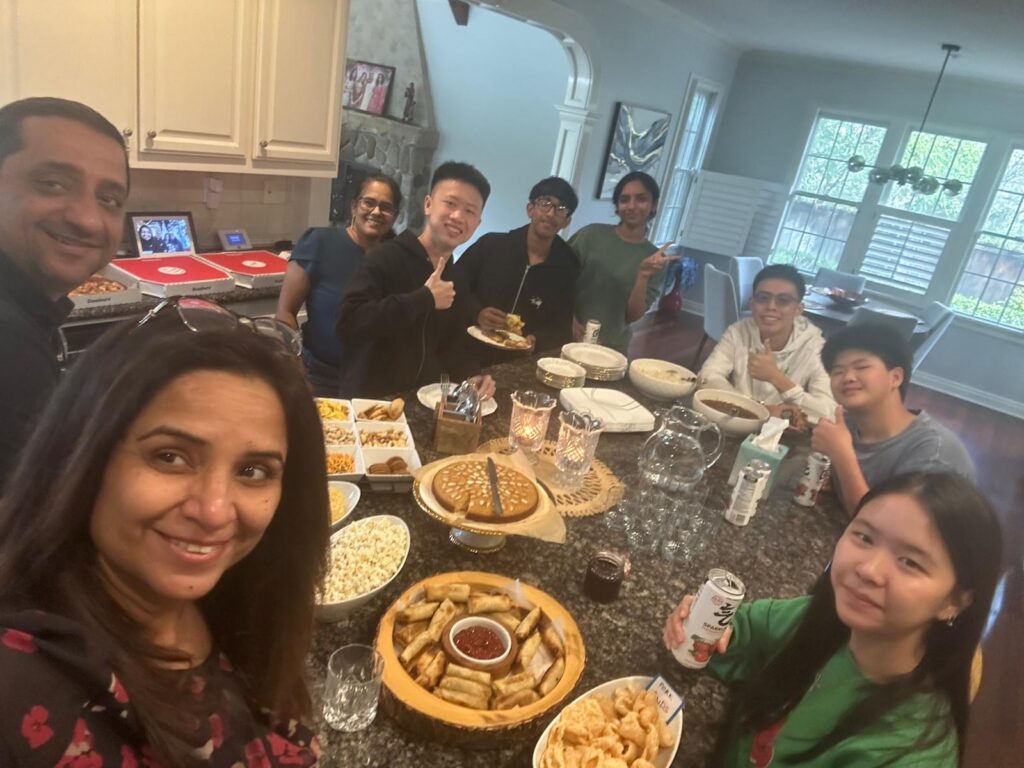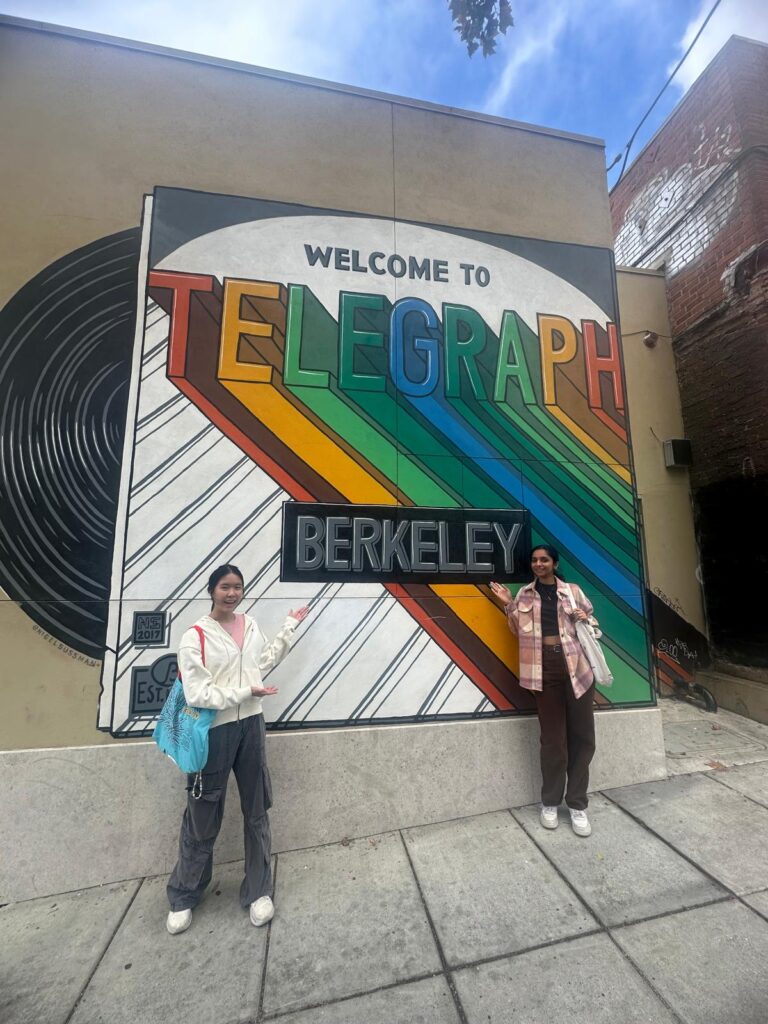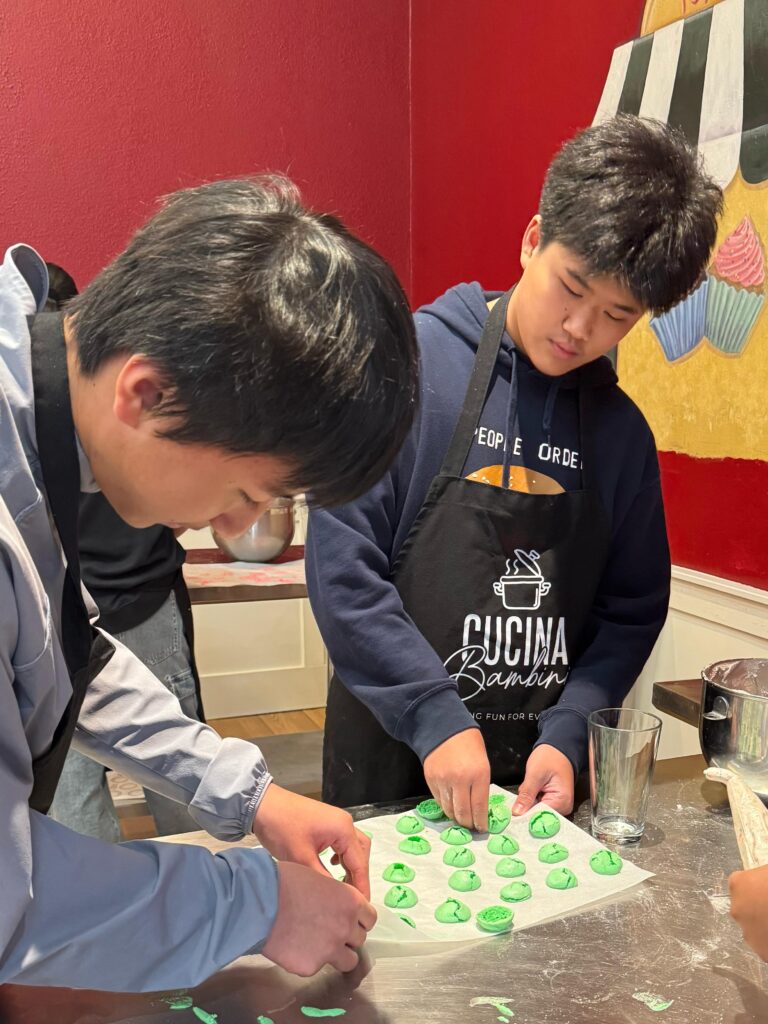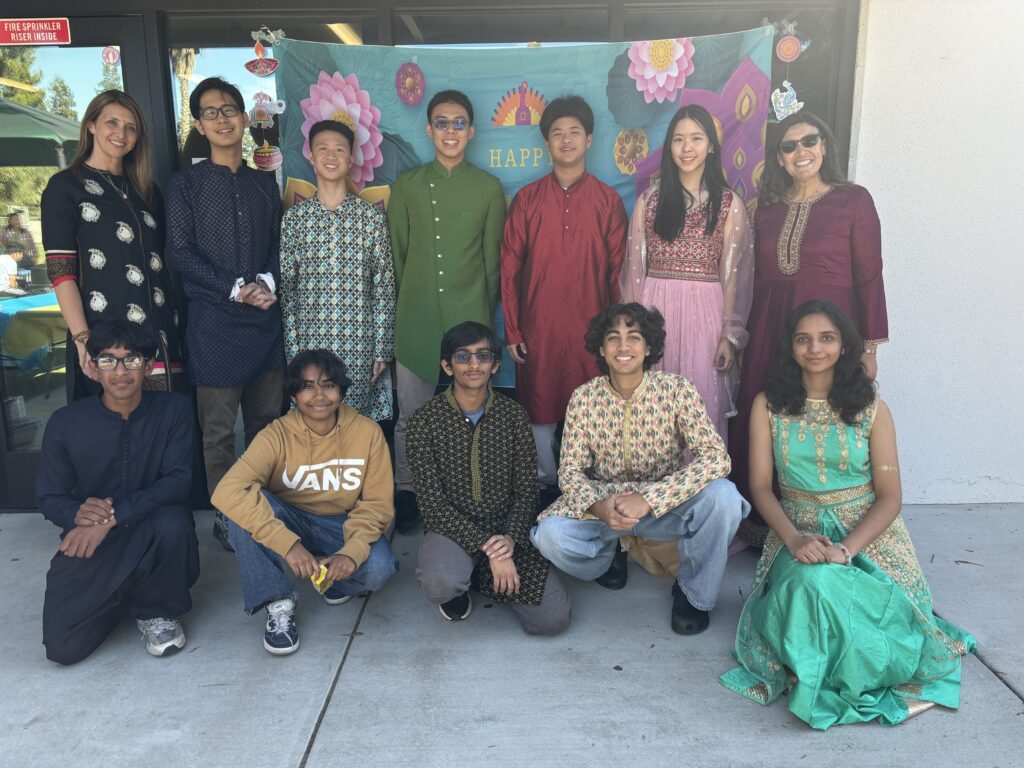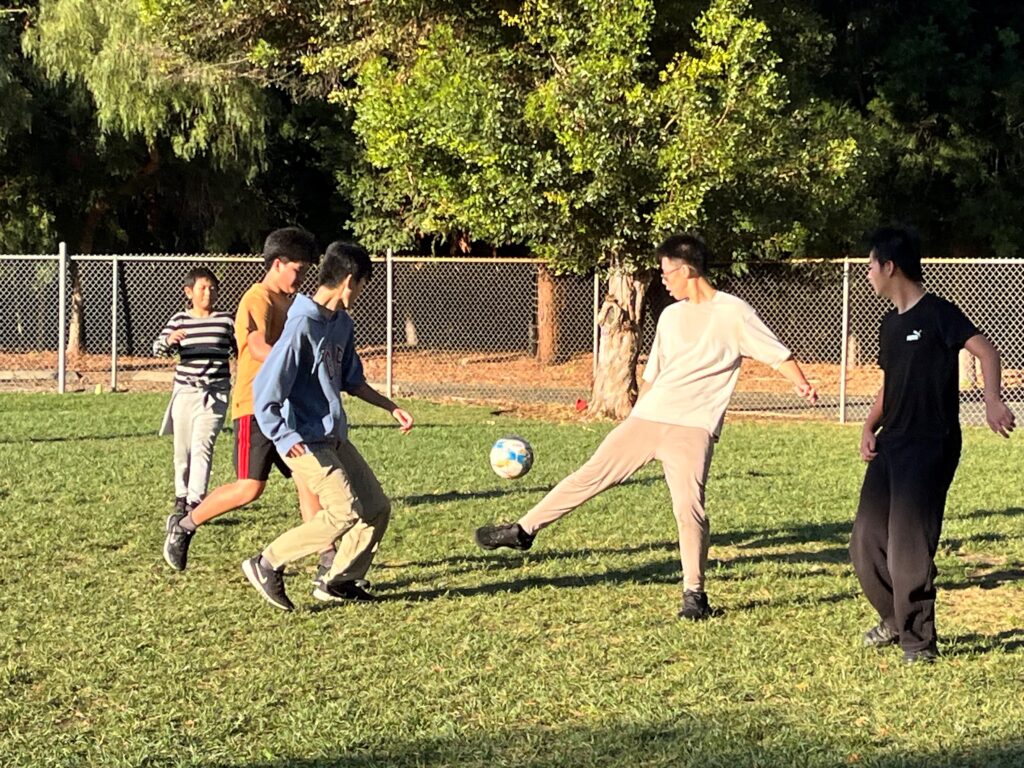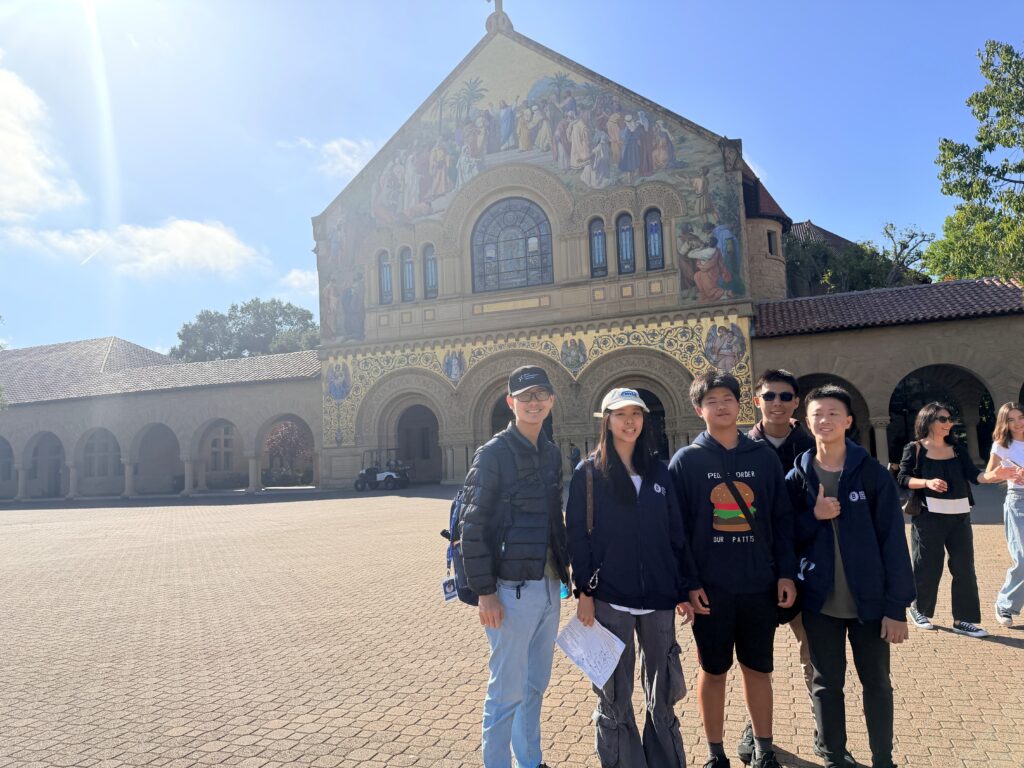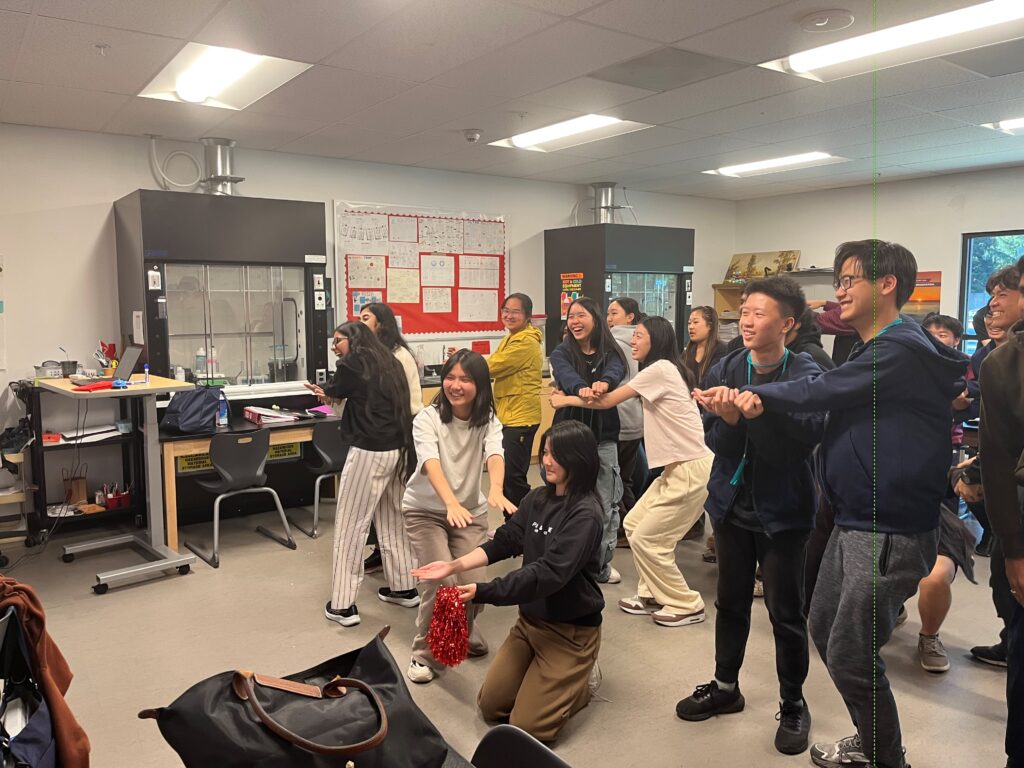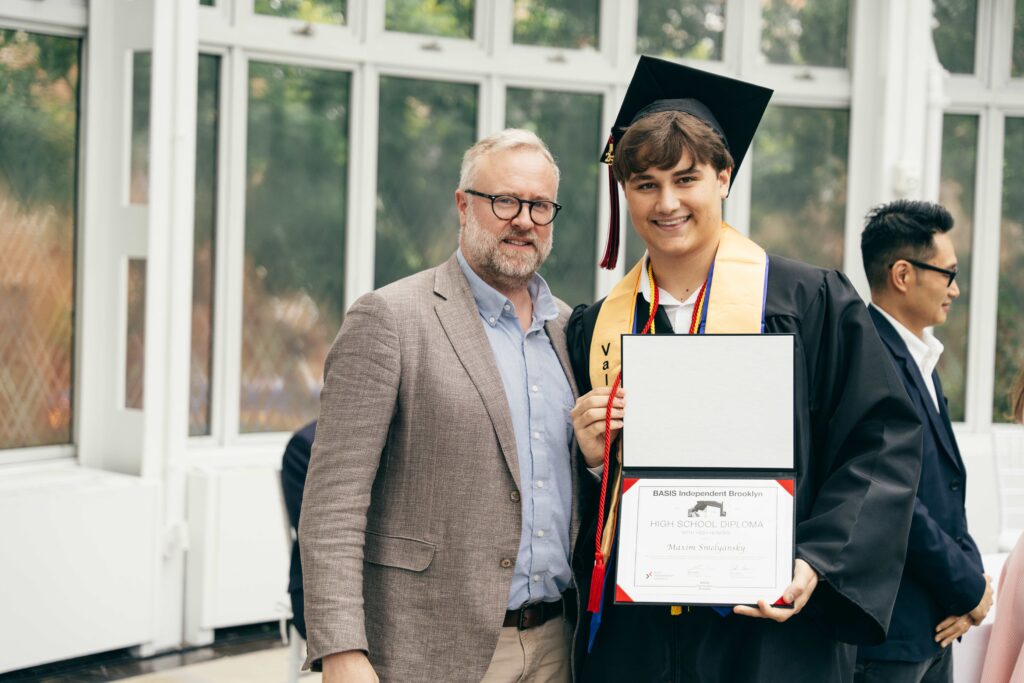
Meet Geo!
Geo has been at BASIS Independent Fremont since grade 4, when he transferred from another private school in the area. Now in grade 8, he moves through a day that includes Pre-Calculus, high school Honors English, and Creative Writing, while also serving on the National Junior Honor Society and participating in Journalism, AI, and Robotics clubs. Outside of school, he’s a gamer (currently into Hollow Knight, though Minecraft dominated for years) and takes coding and Chinese classes to deepen his technical and linguistic skills.
How does he balance it all with a rigorous course load? Geo admits there’s the typical teenage struggle with procrastination, but when it’s time to buckle down, it’s manageable. “It’s like have fun and have time to do things, and then make time to do coursework.”
What makes grade 8 distinctive is how students like Geo begin to take ownership of their learning—choosing electives that reflect their interests, using Office Hours strategically for the subjects that need attention, and pursuing after-school clubs that align with their passions. The academics are demanding, but the opportunities to explore are equally rich.
Period 1 (8:25-9:10): Pre-Calculus AB with Mr. Sharma
Geo’s day begins with Pre-Calculus AB, a course that provides in-depth coverage of major functions, including polynomial, exponential, and trigonometric functions, before moving into matrices, discrete mathematics, and statistics. The course concludes with an introduction to calculus concepts—limits, derivatives, and integrals—preparing students for AP Calculus and beyond.
Today is test day. Students are being assessed on trigonometric functions, covering right triangles, the properties of the six trigonometric functions, application problems, and inverse trigonometric functions. It’s a rigorous start to the morning, but exactly the kind of mathematical foundation that prepares BASIS Independent Schools students for high school and college-level work.

Academic Enrichment (9:15-9:25)
After his math test, Geo heads outside to the Quad with friends. This brief period, monitored by teachers and the Student Affairs team, gives students time to reset before diving into the rest of their day.

Period 2 (9:30-10:15): French IB with Madame Laquidara
French IB builds on introductory language study, developing listening, speaking, reading, and writing skills with a focus on effective communication. Students explore French and Francophone cultures, learning about family life, daily routines, and cultural traditions practiced throughout the French-speaking world.
Class begins with a pop quiz on which verbs are conjugated with être. Afterwards, students break into small groups for a creative project—writing songs in French set to well-known tunes. Geo’s group chose a Christmas classic to get into the holiday spirit, blending language learning with seasonal fun.
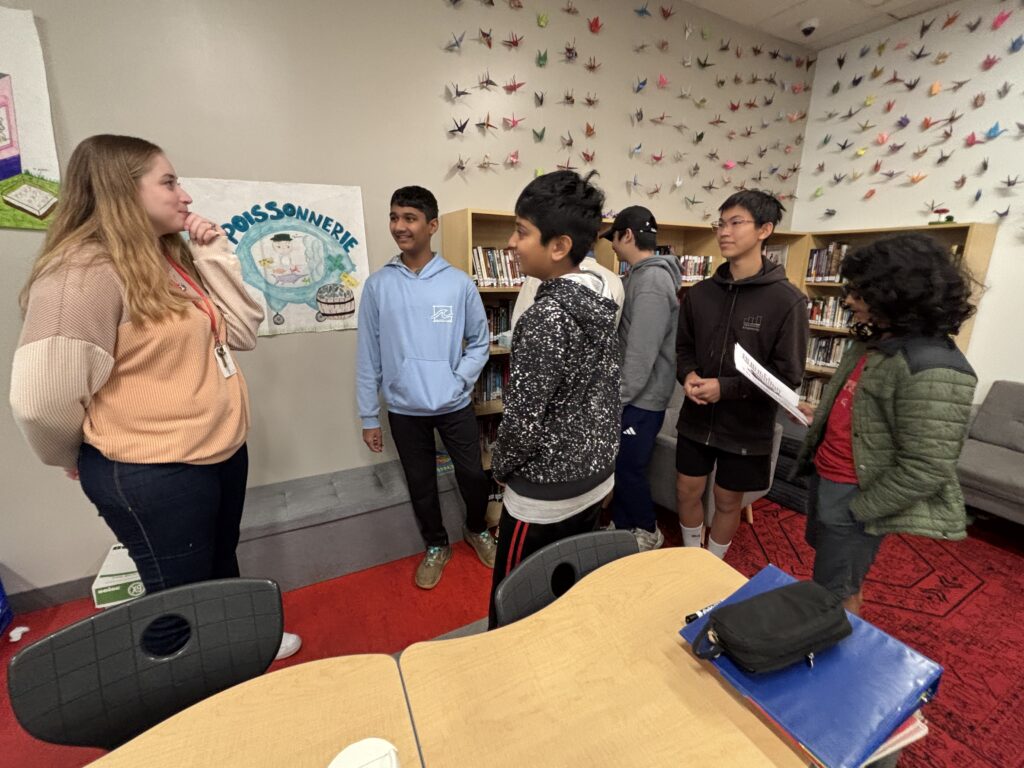
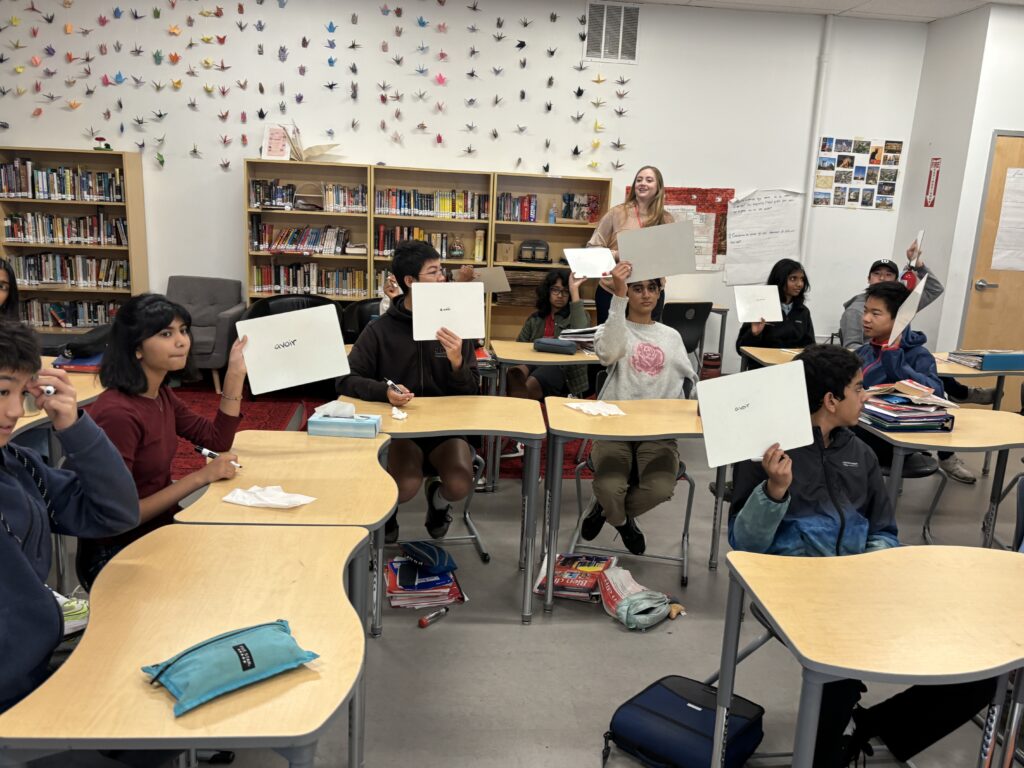
Period 3 (10:20-11:05): PE & Health 8 with Mr. Pappas
PE & Health for grade 8 teaches specific skills through sports while emphasizing teamwork, fair play, and sportsmanship. The course also covers essential health topics, including nutrition, CPR, anatomy, and physiology, providing students with knowledge for lifelong wellness.
After stretches and warm-ups, students play kickball—a chance to move, compete, and practice the collaborative skills they’re developing across all their classes.
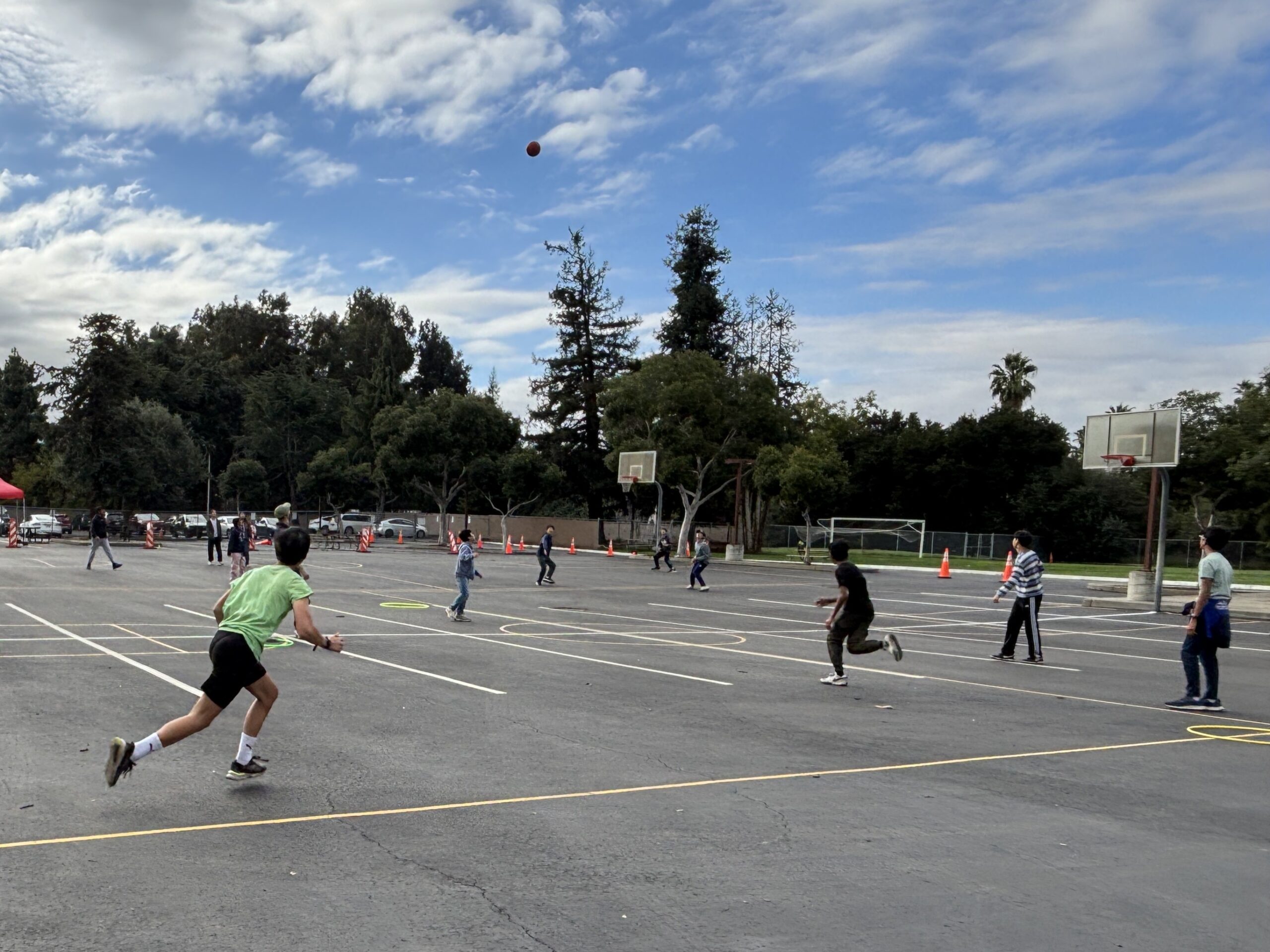
Period 4 (11:10-11:55): Lunch
Geo brings his packed lunch to a National Junior Honor Society meeting. The first ten minutes give students time to eat and catch up, then the group moves through their agenda—reviewing mental health surveys they distributed to students, planning upcoming library organization efforts, and breaking into committees to discuss next steps for their initiatives.
Geo serves on the Peer-to-Peer Tutoring Committee, which organizes weekly tutoring opportunities for middle school students. It’s leadership in action—students identifying needs in their community and creating solutions.

Period 5 (12:00-12:45): English 8 with Ms. Hotaling
English 8 is equivalent to a high school honors program, preparing students for eventual passage of both AP English Literature and AP English Language exams. Students broaden their exposure to different genres while learning to produce thoughtful, well-argued analyses with pieces that are both soundly constructed and powerfully phrased.
Today, students identify values and discuss how these help societies function smoothly, relating the conversation to their reading of “Lord of the Flies”. It’s the kind of thematic analysis that connects literature to larger questions about human nature and social structures.

Period 6 (12:50-1:35): Physics 8 with Mr. Smith
Physics 8 builds understanding of the physical world both conceptually and mathematically, expanding concepts to real-world situations and introducing two-dimensional problems for the first time. Students develop the ability to pose scientific arguments and present evidence to support claims across topics, including kinematics, forces, energy, momentum, optics, electricity, and magnetism.
Today, students prepare for their upcoming unit test on Forces—reviewing concepts and working through practice problems that will demonstrate their mastery of the material.
Period 7 (1:40-2:25): Creative Writing with Mr. Bradshaw
Creative Writing introduces students to prose and poetry, focusing on scene, characterization, plotting, point of view, and dialogue. Students read work from classic and contemporary writers, study craft essays, and critique one another’s original writing.
Today’s prompt: “You’re walking home, and you think you’re being followed. Tell this story.” Students dive into their narratives, building tension and developing their storytelling skills. “I really like writing, especially fiction,” Geo says. “It’s a really fun thing to do, to build a world.”


Period 8 (2:30-3:15): U.S. History with Mr. Loero
U.S. History investigates American history from the Pre-Columbian Era through the turn of the 20th century, designed both thematically and chronologically. The course emphasizes historical thinking skills as students analyze primary and secondary sources, evaluate causes and effects, and examine change and continuity over time to craft historically defensible claims about the past.
Today’s topic: the Tea Act of 1773. Students discuss the political and economic tensions that contributed to colonial resistance, connecting individual events to the larger narrative of the American Revolution.

Office Hours (3:20-4:00)
Most days, Geo uses Office Hours strategically based on what he needs. “It really depends,” he explains. “Sometimes it’s French, sometimes it’s math, sometimes it’s coding. Sometimes I go to Mr. Sharma’s to get work done. It really ranges depending on what homework I have. Usually, it’s time to get coursework done. Sometimes, though, I use him for explanations.”
It’s this flexibility that makes Office Hours valuable—students can seek one-on-one help when they’re stuck, work through challenging assignments with teacher guidance, or dig deeper into subjects they’re passionate about. For Geo, it’s about meeting his needs in the moment, whether that’s tackling a tricky pre-calculus problem or clarifying French grammar.
When the final bell rings, Geo’s day continues with the clubs that fuel his interests beyond the classroom.
Journalism Club has Geo writing articles for the student newspaper, “The Yellow Pages”. His current piece explores the holiday spirit at his local campus, BASIS Independent Fremont. “I think that has taught me a lot of valuable experience,” he notes—developing both writing skills and the ability to capture the school community’s voice.
Robotics Club brings theory into physical form. Students have been building, testing, and driving a moving robot—applying engineering principles, problem-solving collaboratively, and iterating their designs based on real-world performance.
AI Club takes students on a deep dive into how artificial intelligence actually works—and it’s a lot of lines of code. “It’s very interesting to see the functions and how it all works,” Geo says. “It’s very interesting and very intriguing, though it does get a little complicated at times.” The complexity doesn’t deter him; it draws him deeper into understanding the technology shaping the future.

From Pre-Calculus to Creative Writing, from NJHS leadership to hands-on robotics, Geo’s day showcases what’s possible when rigorous academics meet genuine opportunities for exploration. His advice to other students? “I would say join the clubs that seem the most fun for you, but also have a balance of education.” It’s a demanding schedule, yes—but one that prepares students not just for high school, but for thinking critically, creating boldly, and pursuing their passions with purpose for college and beyond.
BASIS Independent Dublin is a Grades 6 – 12 private school, providing students with an internationally benchmarked liberal arts and sciences curriculum, with advanced STEM offerings. Considering joining the BASIS Independent Dublin community? To join our interest list for the next school year and receive admissions updates and more, please click here.

